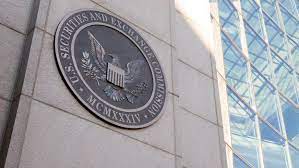SEC Takes Big First Step in Requiring Climate Disclosures

The Securities and Exchange Commission is very busy these days – aggressive enforcement, new rules and regulations, and wrestling with the burgeoning cryptocurrency industry. The SEC will play a key role in rolling out appropriate regulation for Environmental Social and Governance initiatives. A key part of the SEC’s agenda is its long-promised regime mandating disclosure of climate-related risks, greenhouse gas emissions and related financial regulations.

The proposed regulations would broadly apply to domestic and foreign registrants and replace voluntary disclosures that have been made in recent years with a format for future disclosures. Many companies already make climate-related disclosures but the SEC’s new regime would impose a prescriptive set of rules governing such disclosures.
The SEC’s proposal is controversial and will run into vocal opposition. Court challenges are likely to occur and it may be years before a final climate-related disclosure regime is implemented. Many opponents contend that the regulatory requirements are not commensurate with the risk and the burdens that the new regulations would impose.
Under the proposed rules, companies would have to include climate issues in their periodic reports and registration statements. The climate disclosures would be required outside the financial statements. The GAAP rules would not be amended.
Companies would have to provide a quantitative and qualitative disclosures, including (1) climate-related risks; (2) greenhouse gas emissions; and (3) climate governance. With respect to financial statements, the new rules would require specific disclosures in footnotes relating to severe weather events and natural conditions, the financial impact of transition activities, expenditures to mitigate risks of severe weather events and natural conditions, and key assumptions incorporated in the analysis.

The disclosure regime will require detailed explanations of the impact of climate change, all the way to a line-item calculation triggered by a 1 percent immaterial threshold. Whether that threshold is met, the company will be required to undertake a comprehensive analysis.
The SEC set out some specific areas of inquiry under each of the relevant risks.
For climate-related risks, companies would have to make comprehensive disclosures, whether the risks occurred in physical or transitional periods, and were reasonably likely to occur over the short, medium and long term. Such disclosures would have to include the methodology employed to identify, assess and manage climate-related risks. As part of this effort, companies will have flexibility to define the relevant period for analysis and evaluation of the impact on the company’s business and financial results.
With respect to greenhouse gas emissions, companies will be required to describe the methodology, inputs and assumptions used to calculate greenhouse gas emissions. This calculation will depend on several categories: Scope 1, direct emissions by the company; Scope 2 emissions from consumption of energy purchased from third parties; and Scope 3, emissions from the company’s supply chain. Smaller companies would be exempt from Scope 3 reporting and calculation requirements.

The SEC would require reporting of targets and goals for greenhouse gas reduction and any other climate-related measures. Companies would provide data to confirm any progress toward reaching a goal or objective, including the amount of carbon offsets and credits that may be applied.
Companies would have to identify any director with expertise in this area. Clearly, the SEC Hopes that climate expertise would be a requirement for at least one director on a corporate board.
The new rules would be phased in depending on the size of the business. Large fliers would not be subject to the rules until 2024 filings for 2023 financial performance.
The SEC’s proposal will be subject to vigorous challenges, including the SEC’s statutory authority to impose this new regulatory regime.
















1 Response
[…] Source link […]